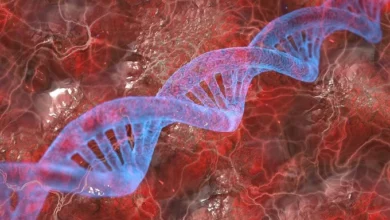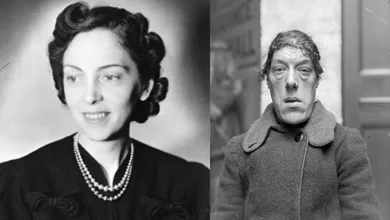The Benefits of Holistic Therapies in Addiction Treatment

When we think of addiction treatment, we typically imagine medical or clinical interventions like medication and psychotherapy. However, a growing body of evidence suggests that an approach that emphasizes holism—or incorporating emotional, mental, physical, and spiritual well-being for comprehensive care—may be more beneficial for people struggling with addiction.
Holistic therapies have become increasingly popular in addiction treatment due to their proven effectiveness in helping people find relief from substance use disorder while promoting overall health and wellness. In this article, we’ll look at some of the holistic therapy options available today and how they could be invaluable in effective recovery programs.
An Overview of Holistic Therapies and How They Work in Addiction Treatment
Addiction can be a complex issue that requires more than just traditional modes of treatment. It is why holistic therapies have become an increasingly popular option for individuals struggling with addiction. Holistic therapy is based on the idea that the mind, body, and spirit are interconnected, and treating each aspect of a person is essential to one’s healing.
Complementary therapies such as meditation, yoga, mindfulness-based stress reduction, and acupuncture in addiction treatment can help individuals develop self-awareness, reduce stress, and increase feelings of well-being. At thedawnrehab.com, they understand the transformative power of holistic therapies and strive to integrate them into their addiction treatment programs to help their clients achieve lifelong recovery.
The Benefits of Mindfulness and Stress Reduction Techniques
Mindfulness is an ancient practice adapted for use in modern addiction treatment programs. This form of meditation typically involves focusing on one’s breath and being aware of one’s thoughts and feelings without judgment. Research has shown that mindfulness can help individuals with substance use disorders to recognize triggers, reduce cravings, and ultimately lead healthier lives.
In addition to mindfulness, stress reduction techniques such as yoga, Tai Chi, and progressive muscle relaxation benefit those dealing with addiction. These activities can help individuals manage their emotions better while also improving physical health and well-being. By providing a safe space where clients can work through difficult emotions without the added pressure of using drugs or alcohol, these therapies can make a huge difference in one’s recovery journey.
Exploring the Potential Benefits of Aromatherapy and Art Therapy
Aromatherapy is another form of holistic therapy used in addiction treatment for many years. This practice involves using essential oils to help relaxation, reduce stress, and improve overall well-being. Research shows that certain combinations of essential oils may be especially beneficial for individuals struggling with substance use disorders. For example, lavender is thought to help promote calmness, while peppermint can stimulate alertness and focus.
Art therapy is also gaining traction in addiction treatment to assist clients in exploring their emotions and developing new coping skills. By eng aging in creative activities such as painting or writing, individuals can learn how to express themselves without relying on drugs or alcohol as a coping mechanism. Art therapy can also be a fun and therapeutic way to engage in self-care.
Yoga and Meditation for Well-being and Emotional Regulation
Yoga is an ancient practice that combines physical movement with breathwork to create a sense of balance in the body. It has become increasingly popular in addiction treatment programs because it promotes relaxation, reduces stress, and improves sleep quality. Research shows that yoga can help individuals better regulate their emotions and increase self-awareness.
Similarly, meditation can be incredibly beneficial for those dealing with addiction as it helps to bring clarity and focus while calming the mind. This practice can help those with substance use disorders recognize triggers and cope with cravings more effectively. Meditation is also thought to reduce anxiety, depression, and other mental health issues that may have contributed to one’s disorder in the first place.
Exploring Other Alternative Therapies such as Acupuncture, Hypnosis, Reiki, and Massage
In addition to the therapies above, several other alternative treatments can benefit those dealing with addiction. Acupuncture is a form of ancient Chinese medicine that involves using needles at specific points in the body to stimulate energy flow and healing. This practice may help reduce cravings and improve physical health in individuals battling substance use disorders.
Hypnosis is another form of alternative therapy that has been used in addiction treatment programs for many years. It involves putting an individual into a trance-like state where they become more open to suggestions and able to access deeper parts of their subconscious mind. It can promote relaxation, reduce stress, and help individuals gain greater insight into their addictive behaviors.
Reiki is a Japanese form of energy healing that has been used to help reduce anxiety and depression and promote physical health. Similarly, massage therapy can help manage stress and promote relaxation while improving overall physical health.
Assessing the Impact of Holistic Therapies on Long-Term Recovery Outcomes
The use of holistic therapies in addiction treatment has become increasingly popular due to their potential benefits. Such treatments help individuals better understand their triggers, explore underlying emotional issues, and develop healthier coping skills that can lead to long-term recovery. Research suggests that these therapies may also reduce stress and improve physical health, making it easier for individuals to focus on their sobriety journey.
A growing body of evidence suggests holistic therapies can be a practical part of addiction treatment programs. By providing alternative methods of managing stress and exploring emotions without relying on drugs or alcohol, these treatments may help reduce relapse rates while promoting overall well-being. As such, those dealing with addiction need to consider incorporating some of these therapies into their recovery plan.




